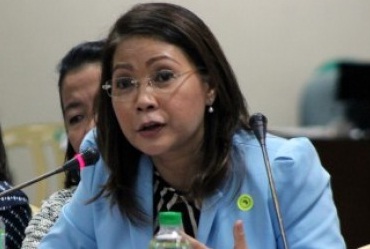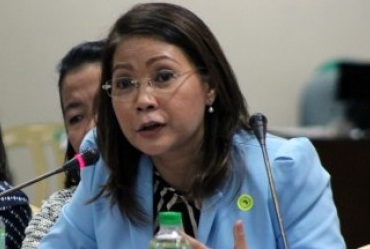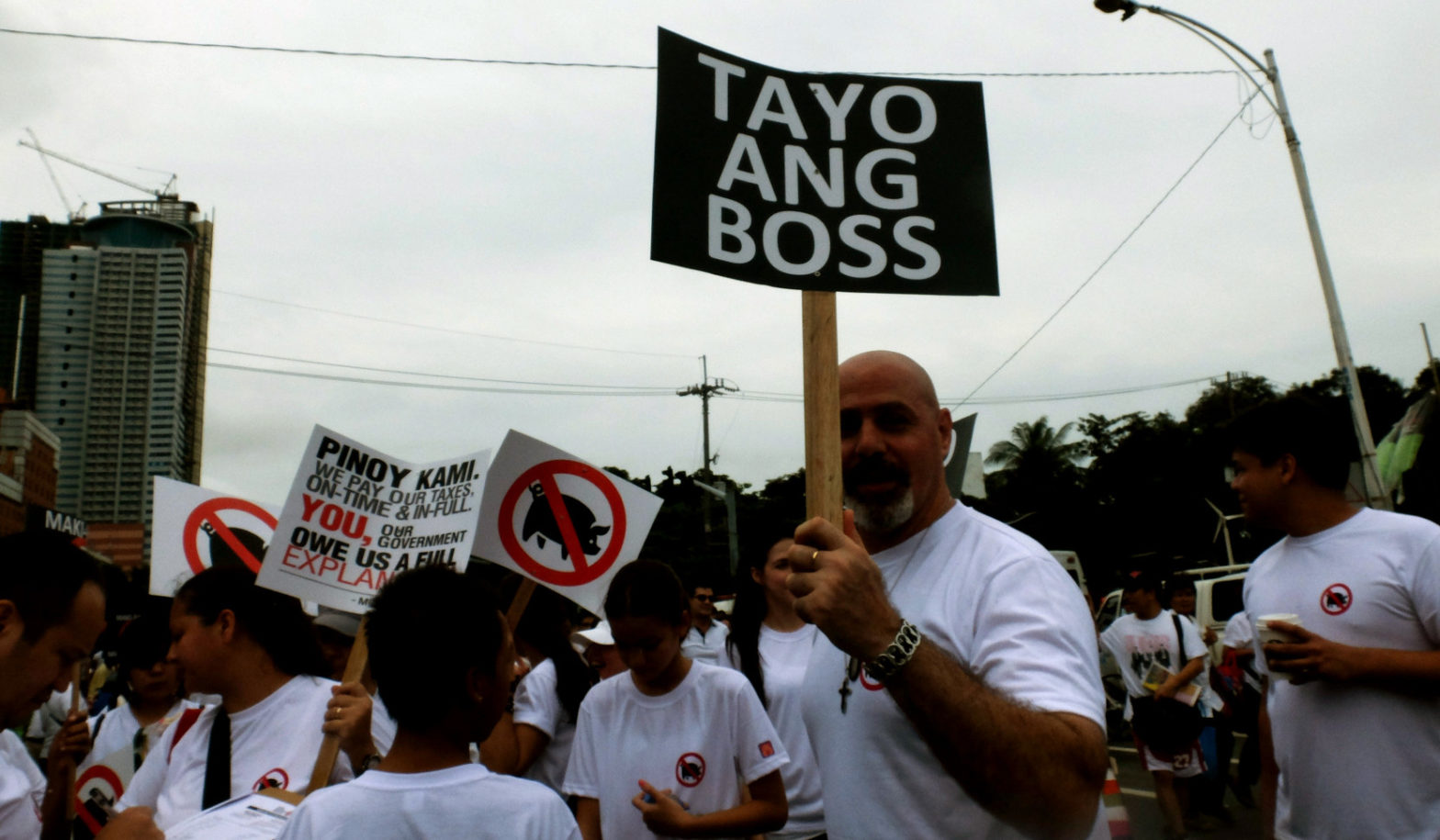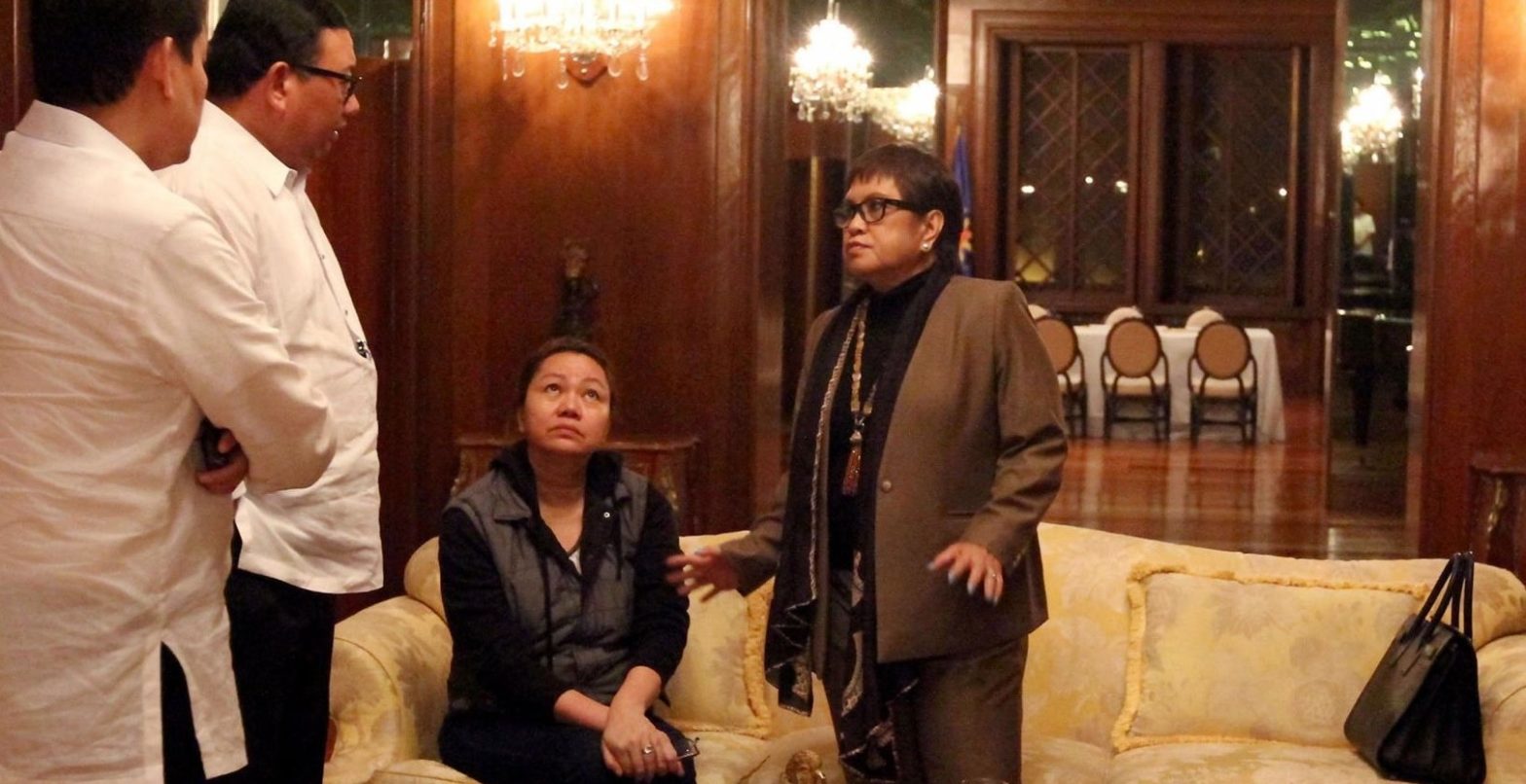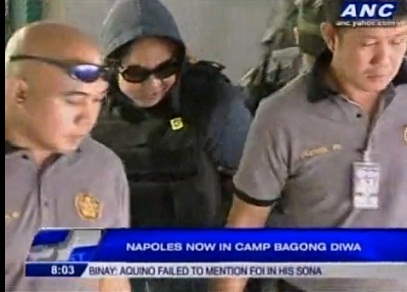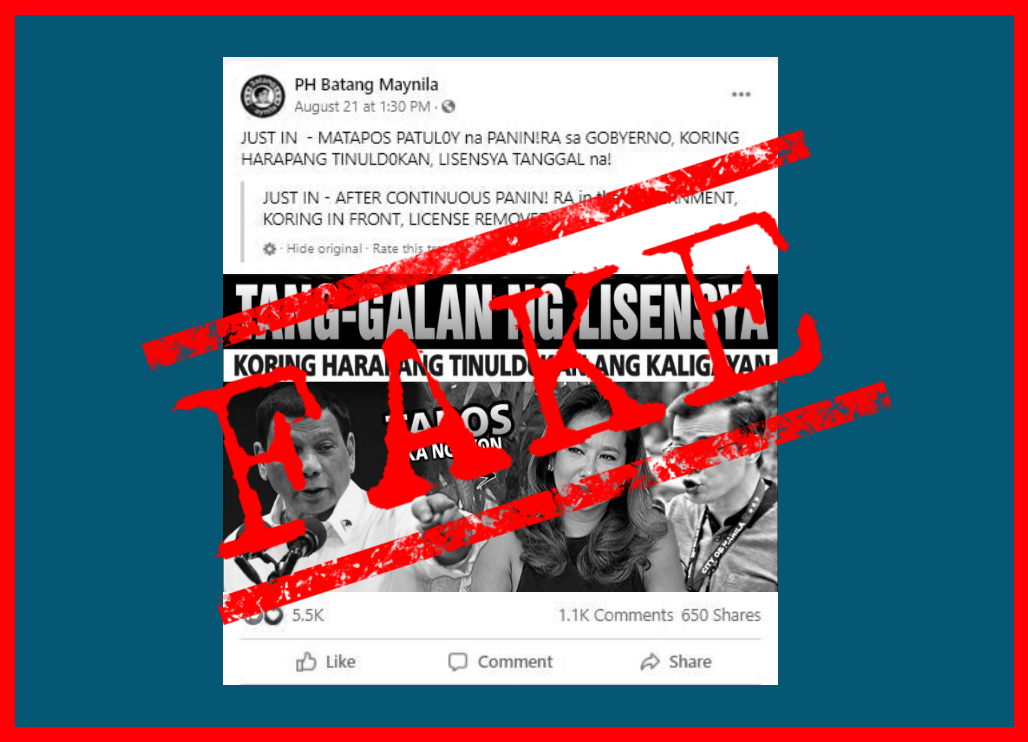By ELLEN T. TORDESILLAS
THAT was a strong statement that Luchi Cruz-Valdes, head of TV5’s news and public affairs department, unleashed against those who dragged her name in the Janet Napoles pork barrel scandal especially the Philippine Daily Inquirer who published the unverified information.
Luchi’s name was mentioned in Inquirer’s May 18 issue as one of the mediamen in the list of those who “received” cash gifts from Napoles through a certain Mon Arroyo, former television director. The documents, Inquirer said, were contained in the hard disk given to them by the mother of Benhur Luy, one of the whistleblowers in the Napoles PDAF (Priority Development Assistance Fund) scam, and Levi Baligod, former lawyer of Luy way back on April 27, 2013 when the two visited the Inquirer office.
“The current climate and appetite for news on the PDAF scam calls on all journalists to not only be aggressive and tireless in ferreting out facts, but to also be circumspect in every purported piece of information or data exposed, volunteered, or surrendered by our various sources. Media is allowed and empowered with that mandate to clarify, rather than confuse, matters for the public, and at the very least to separate speculation from fact,” said Valdez-Cruz who vehemently denied the allegation and denounced any imputation or suggestion that she benefitted in any way from the PDAF funds.
Others allegedly in the list are broadcasters Korina Sanchez of ABS-CBN, Mike Enriquez of GMA7, Deo Macalma of DZRH and Rey Pacheco.
Sanchez and Enriquez were listed to have been given P50,000 each “birthday gift” in 2004.
Sanchez and Enriquez vehemently denied ever receiving money from Napoles or Arroyo. Enriquez said he doesn’t know Napoles.
Sanchez said she only met Napoles last year when she interviewed the businesswoman in connection with the PDAF controversy.
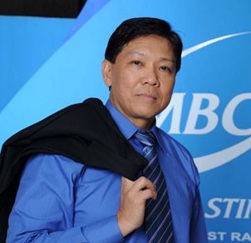 Macalma and Pacheco were alleged to have gotten a total of P715,000 from 2004 to 2008.
Macalma and Pacheco were alleged to have gotten a total of P715,000 from 2004 to 2008.
Macalma said he was shocked by the Inquirer report and strongly denied the allegation.”Ang nasabing alegasyon ay tahasan ko pong itinatanggi.
“Una, hindi ako tumanggap ng anumang halaga mula kay Mrs. Napoles o mula kay Benhur Luy; pangalawa hindi ko kilala o personal na kakilala si Mrs. Napoles; pangatlo, hindi ko rin kakilala si Benhur Luy; pang-apat, kung totoong nasa listahan ni Benhur Luy ang aking pangalan, ang tanong ko sa kanya ay: ‘Kanino ibinigay ang pera?’ at ‘Sino ang tumanggap ng malaking halaga ng pera?’
Similar to Cruz-Valdez, Macalma appealed to media to verify first before they report: ”Ako ay umaapela sa mga nagbibigay ng ganitong alegasyon na sana ay iyong mga totoo lamang ang kanilang mga ibinabandera at katulad din sa ating kababayan, ako ay kasama rin sa mga naghahangad na lumabas ang katotohanan tungkol sa anomalya ng Pork Barrel Scam at iba pang kontrobersiya na may kinalaman sa isyung ito.”
Inquirer said Cruz-Valdez’s name was mentioned under Arroyo’s allocation for the media. The money was for “a meeting with Eric of Abante Tonight” and “representation expense for Luchi Cruz of Probe team charge from COA reports on NGOs.”
It was obvious Inquirer did not verify because they should have known that Cruz-Valdez was no longer with Probe during those years (2004-2008).
Cruz-Valdez said: “I denounce the reckless inclusion of my name in a list that has no legal legs to stand on. Luy’s supposed record is largely hearsay; the reporting of such as anything even remotely truthful not only casts grave doubt on my person and professional integrity, but on that of the very institution of the press of which the Inquirer is part.
“In particular, PDI’s wanton, liberal, and matter-of-fact treatment and use of the word “payout”, in the context of the above passage and that of every media person’s name so far uttered by Luy and printed by the Inquirer, is dangerous. It recklessly disregards the full context of what Mr. Luy claims but cannot prove, nor even claim to know. At best, Mr. Luy can only attest to his dealings with Mr. Arroyo. PDI’s reportage leads its readers to a perilous leap in the narrative, not only irresponsibly taking Luy’s notes as factual, but extrapolating his personal knowledge to establish a direct relationship between him and the media persons whose names Mr. Arroyo had merely dropped, when clearly Luy himself has yet to claim such knowledge.”
Cruz-Valdez appealed to the Inquirer: “I would urge our colleagues in the PDI to have that much respect for its own readers and the larger Philippine public. The search for truth demands that news organizations demonstrate that they at least know the basic difference between loose words and established fact, and be responsible enough to at least qualify when one is spewed and the other is not quite really there.
“Beyond that, by all means, let the chips fall where they may. We – and I – continue to encourage all our institutions (the media included) to continue the quest for truth and justice.”
This alleged Napoles/Luy media list once again compels members of media to remind themselves of the true essence of their calling.
Many are of the opinion that posting unverified data is not good journalism. It violates some of the basic values of journalism which are truthfulness, humaneness (you don’t put innocent people in harm’s way), and fairness.
Four years ago, when Wikileaks released on its website the classified documents filched by U.S soldier Bradley Manning from U.S. military and diplomatic communication, there were questions if that was journalism.
Steven Aftergood, head of the project on government secrecy at the Federation of American Scientists, speaking about Wikileaks said, “The service that they have been providing up to now is that of a source of documents. But documents are not journalism. Documents can mislead as easily as any other source. The function of journalism still needs to be carried out as carefully and responsibly as possible.”
When you speak of function of journalism, Aftergood said, “That means confirming the accuracy of the content of any particular document. It means placing it in some kind of political or policy context, and it means collecting a range of interpretations of the significance.”
